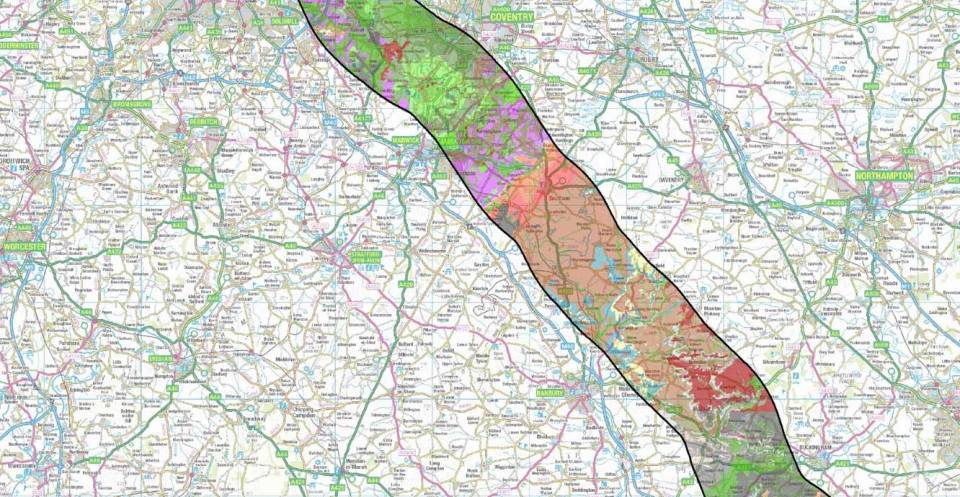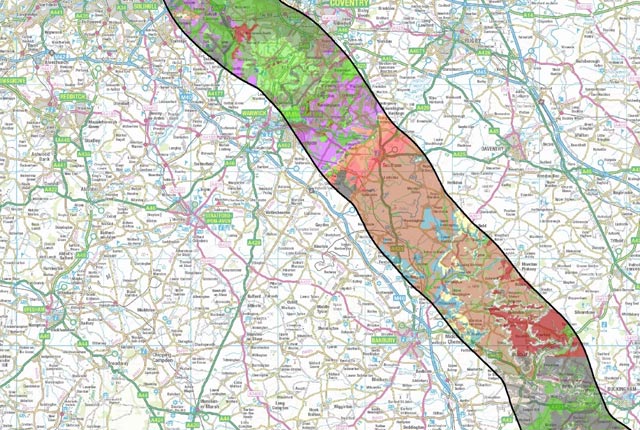All major transport projects create and utilise excavated materials to create underpinning infrastructure in the form of tunnels, cuttings and embankments. Balancing the mass of material being used along a network is critical to managing costs and this may require units being excavated, stored, relocated and reprocessed (turbated, compacted or mixed). Many geological materials have chemical and physical characteristics that need to be considered prior to reuse as a construction material.
Scoping assessment of geochemical properties in excavated materials from High Speed 2 (HS2)

Geochemical domains along part of HS2. Contains OS data © Crown Copyright 2020.
The BGS was commissioned by CH2M (now part of Jacobs Engineering Group) to provide a scoping assessment of ground characteristics along the proposed route of HS2 that may be relevant to excavation, handling and re-use. The project used a range of data and information from the BGS Geology, BGS Civils and BGS Geochemistry portfolio:
- sulphide/sulphate potential (presence, form)
- bulking properties
- suitability for use as ‘fill’ (including presence and form of organic matter)
- excavatability (including presence and form of calcareous units)
- pH
- naturally occurring metals with potentially toxic characteristics (arsenic, cadmium, copper, lead, nickel, zinc, uranium and thorium)
The assessment provided an overview of potential for leaching of chemicals during excavation, storage and construction; identification of units likely to exhibit changes in chemical/physical character as a result of handling, and units that may be inappropriate for use in certain habitats or when mixed with materials from other localities.
Contact
If you want to discover more then please contact Russell Lawley.
You may also be interested in

Product development
Producing a broad range of geological data and information, including digital mapping, for all stakeholders.


